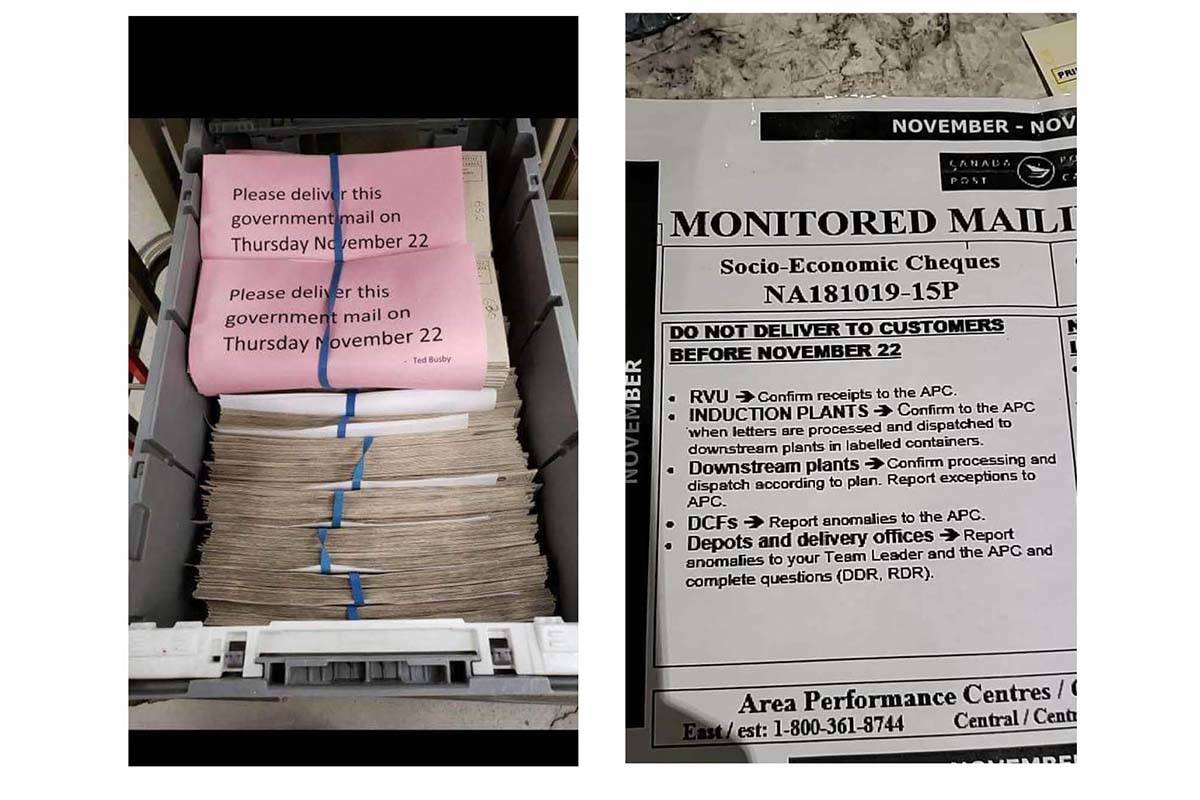Canada Post officials say the “isolation” of Old Age Security and other cheques is not an underhanded tactic, as implied by a union worker, but a plan agreed to by both sides to ensure people receive their cheques in an orderly fashion in case of a work stoppage.
In an interview with Black Press Media on Nov. 22, “Chris,” who did not wish to use her real name, said Old Age Security cheques have been sitting in the office at her station since Nov. 13, with “Do not deliver until Nov. 22” stamps on them.
RELATED: Postal worker accuses Canada Post of questionable tactics
Chris said the mail backlog was to create a crisis and blame the workers: “Now they can say ‘our carriers are on strike, and that’s why you’re not getting your mail on time.’”
Canada Post did not comment on the assertions prior to publication Thursday, but did submit a response when prompted a second time, Friday.
Officials confirmed the isolation and specific delivery instructions with the cheques, saying it had to be done to ensure they were not lost or misplaced during the strike.
“We have an agreement with [the Canadian Union of Postal Workers] to deliver the cheques where strike activity is occurring and that’s what we are doing,” said an email reply from Canada Post media relations.
“The cheques have to be isolated because if the location is on strike, they can’t be mixed up in the mail stream and end up trapped. Distribution dates are determined by the agencies that prepare the cheques and we fully respect that.”
The about 605,500 cheques in question are primarily Canada Pension Plan, Old Age Security, and Child Care Benefit.
Chris had also told Black Press Media the reports of backlogs are greatly exaggerated.
“There are maybe 50 trailers across Canada that haven’t been unloaded yet,” Chris said. “Canada Post is saying there are hundreds and hundreds, which isn’t the case at all. This is all fabricated by them to create this crisis.”
Canada Post did not address those assertions in its response.
Socio-Economic Cheque Program by CVRecord on Scribd



